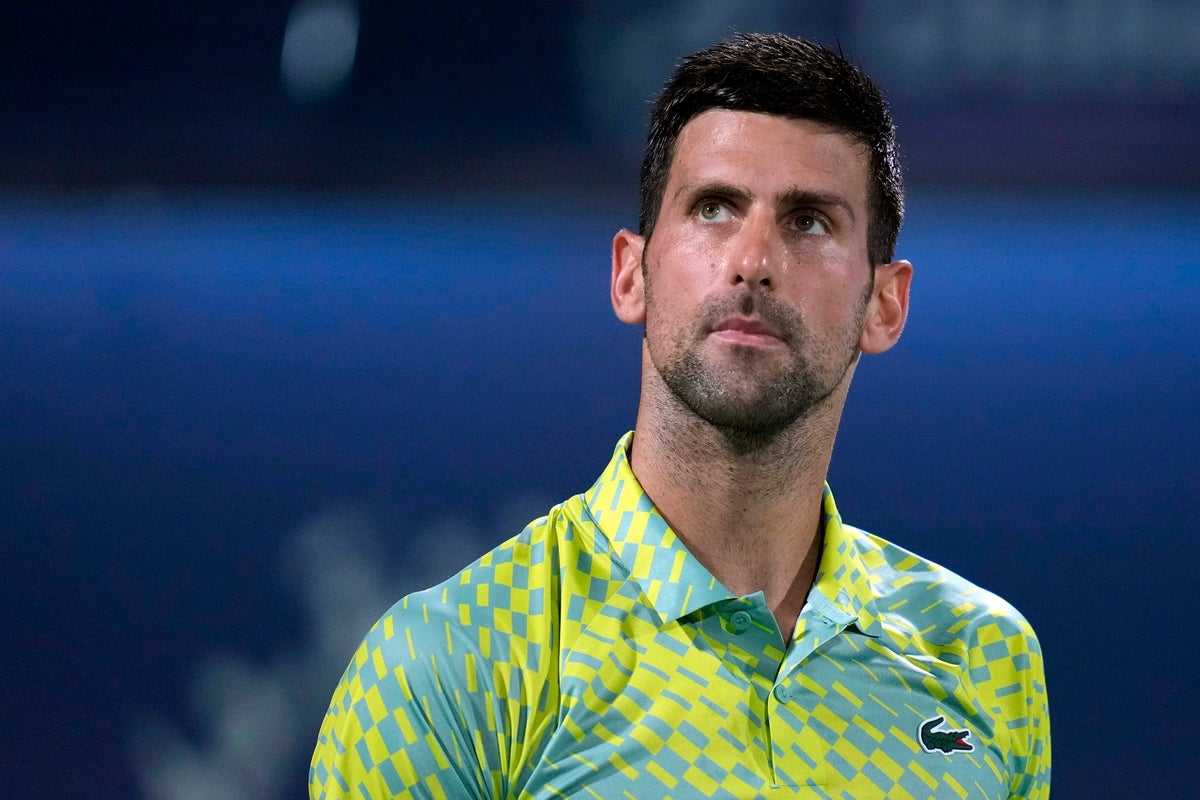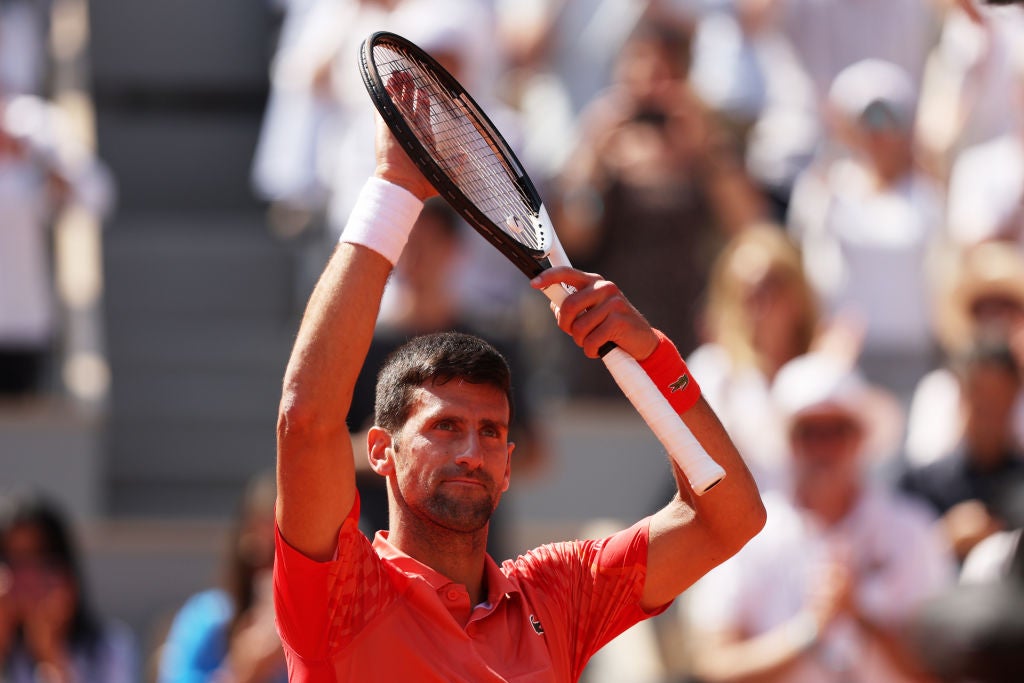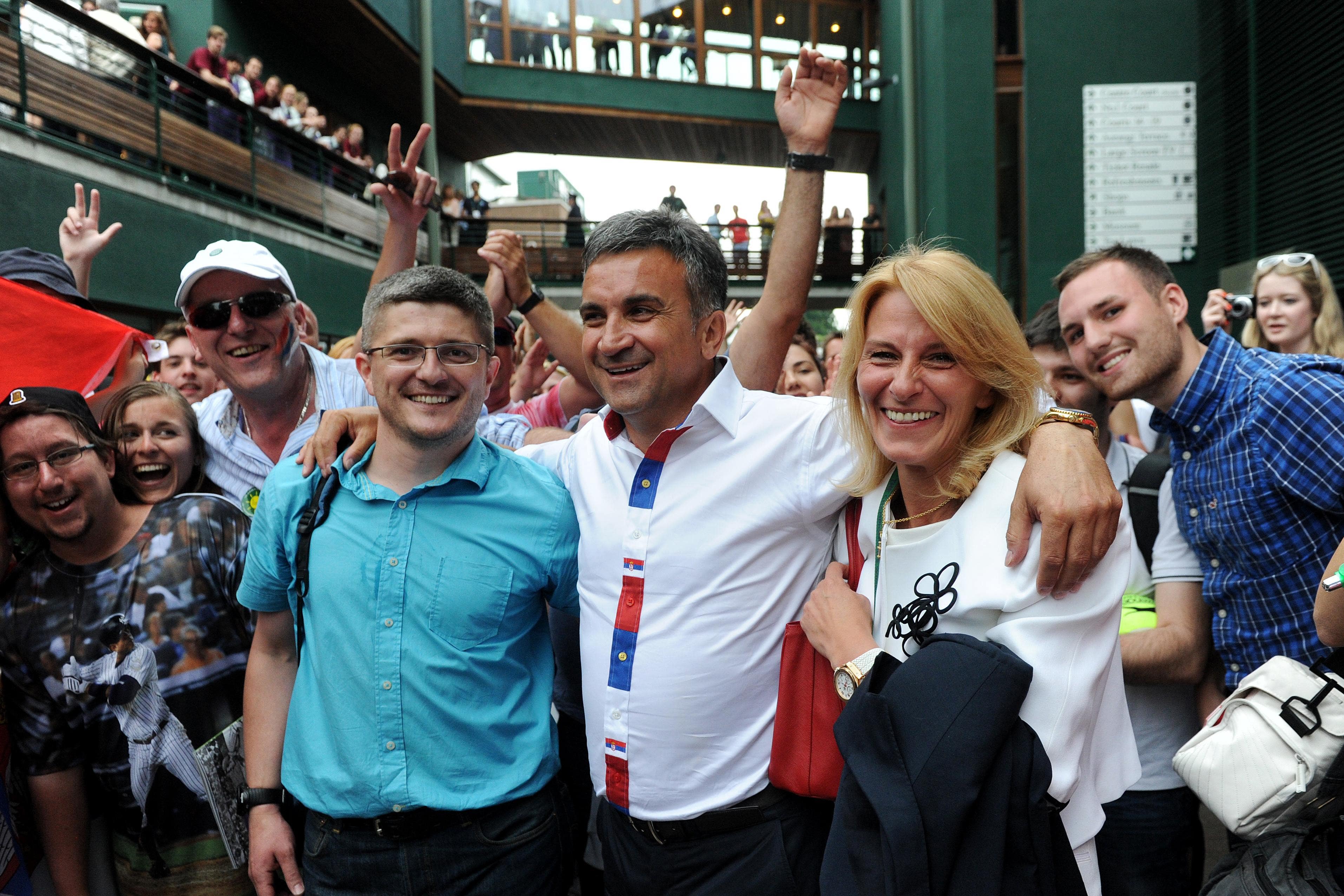
Novak Djokovic might be as well-known for his off-court controversies as his tennis brilliance. The case of his detention and deportation from Australia drew worldwide attention and sparked anger in his homeland, Serbia. His father, Srdjan, remained adamant that Djokovic was “the Spartacus of the new world” and that “he is like water and water paves its own path”.
His father’s reaction may be indicative, but Djokovic’s unorthodox world view and scepticism of societal norms have been advertised, and self-promoted, for several years. After all, it was in his own book, Serve to Win, that he detailed the moment his transformative gluten-free diet began in 2010, when he self-diagnosed a celiac allergy by pressing a slice of bread against his abdomen.
The true depth of Djokovic’s belief in alternative treatments was epitomised by his vehement opposition to undergoing surgery in 2017. Despite struggling with a near-intolerable pain in his elbow, which led to Djokovic failing to reach a grand slam semi-final in a calendar year for the first time in over a decade, he was insistent that a cure could be found through holistic medicine. When he eventually succumbed in February 2018, Djokovic claimed he cried for three days after waking up from the operation. “Every time I thought about what I did, I felt like I had failed myself,” he said. He has won eight of the 14 grand slams that have been played since.
Those credences help put into context why Djokovic is so resistant to taking the vaccine. He is not so much an anti-vaxxer in the sense of indulging wild conspiracy theories relating specifically to the jab but ideologically opposed to such methods of scientific treatment across the board. “Personally I am opposed to vaccination and I wouldn’t want to be forced by someone to take a vaccine in order to be able to travel,” he said in April 2020.
Djokovic is a genius of his field, and certainly no jester. He is, by most measures, wildly intelligent, a deep thinker, and commands the respect of his fellow players. Perhaps, then, the point is what proportion are genuine, obstinate beliefs, and what are actually potentially contrived – an innate suspicion of convention that has been moulded into a competitive edge; the us-against-them mentality that’s enabled him to best harness his talent and become one of the greatest sportsmen in modern history.

In the past, Djokovic has often spoken about coping mechanisms and the value of “mental strength” to comprehend his childhood in the war-torn former Yugoslavia. The 11-year-old boy and his family sheltered in the basement of his grandfather’s flat during Nato’s bombing raids on Belgrade in 1999. He still practised his tennis, but had to move to a different site each day. He was eventually spotted in the mountain resort of Kopaonik, where his parents owned a pizzeria, by Jelena Gencic, who ran tennis camps there – and invited to play.
“After three days I met his parents,” Gencic – who died in 2013 – recalled later to The Independent’s Paul Newman. “I said to them: ‘You have a golden child.’” Djokovic’s “tennis mother” would also encourage his interest in classical music and languages.
He needed mental strength to handle the burden of being a child prodigy and the extremes of junior tennis and into his senior career. He won his first grand slam title, at the Australian Open, at 20, but his physical abilities were sometimes questioned over the next few years – that previously mentioned change in his diet was one factor in 2010 that Djokovic said had pushed him on. Another you could mark was was Serbia’s 2010 victory in the Davis Cup, the national competition. Serbia won the trophy for the first time, with now-Monaco resident Djokovic always being proud of being a sporting ambassador for his country. Djokovic would go on to have a title-laden 2011 and spring forward from there.
He is the Robin Hood of tennis— Goran Ivanisevic
During that time, he’s formed his own perspectives and built his own walls to the outside world in pursuit of a singular objective. Take the surgery saga of 2017, when Djokovic insisted a persistent elbow injury should be treated by holistic methods. After eventually resigning himself to surgery, he claimed he “cried for three days straight”. In his eyes, by letting the will of the outside world triumph over his own, he’d “failed”.
It’s easy to see how those traits have transferred into Djokovic’s tennis, too, particularly when he is backed into a corner. In the third round at Wimbledon 2018, for example, when he was jeered by Centre Court after receiving a time violation against home favourite Kyle Edmund. He became consumed by a visceral anger, blowing kisses to the crowd, and barely let down his guard until he clinched a fourth title eight days later. As the irrepressible third wheel to Roger Federer and Nadal, he has perennially been cast as the villain.
Djokovic – who has a son and a daughter with his wife Jelena – has given millions to charity, but his public image is not the same as Federer and Nadal. It was not helped by the exhibition Adria Tour in Serbia and Croatia in the summer of 2020 when the ATP Tour had shut down. Several players contacted Covid during the Djokovic-fronted event and arrangements faced criticism from a number of quarters.
More recently he has become embroiled in issues of politics, defending his father by insisting he did not intend to pose for pictures with supporters of Vladimir Putin at the Australian Open. Srdjan was filmed standing next to a Russian flag with Putin’s face on it, and a man who wore the ‘Z’ logo that indicates support for Russia’s invasion of Ukraine.

Then at this year’s French Open, Djokovic wrote on a camera lens: “Kosovo is the heart of Serbia. Stop the violence.” Kosovo declared independence in 2008 but Serbia has never recognised that and violence recently broke out in the north of the country. Serbia has troops stationed near the border and there are fears of a return to the violent conflict of 1998-99.
Speaking to Serbian journalists in comments reported by the country’s media, Djokovic said: “I am not a politician, nor do I intend to enter into debates. As a Serb, it hurts me what is happening in Kosovo. Our people have been expelled from the municipalities. This is the least I could do. As a public figure, I feel an obligation to show support for our people and all of Serbia.
“I hear there was a lot of criticism on social media. I don’t know if someone will punish me or something like that, but I would do it again. I am against wars and conflicts of any kind.”
One of Djokovic’s coaches, the former Wimbledon champion Goran Ivanisevic, believes the player is misunderstood. “Sometimes people only pick out the bad things he does,” he told The Times. “They don’t see the good he does in helping others. He is the person who is not afraid to speak out, the only tennis player who stands up for the other players. He is the Robin Hood of tennis.”
Ivanisevic believes the tennis world – and others – will miss Djokovic when he retires from the sport.
For Djokovic, you feel the situation in Australia was just the next step in the contradiction that has underlined his career. There has always been precious little to differentiate the man from the athlete. His stubborn single-mindedness – or selfishness – has been integral in him becoming such a remarkable player.
A version of this article was originally published in January 2022







